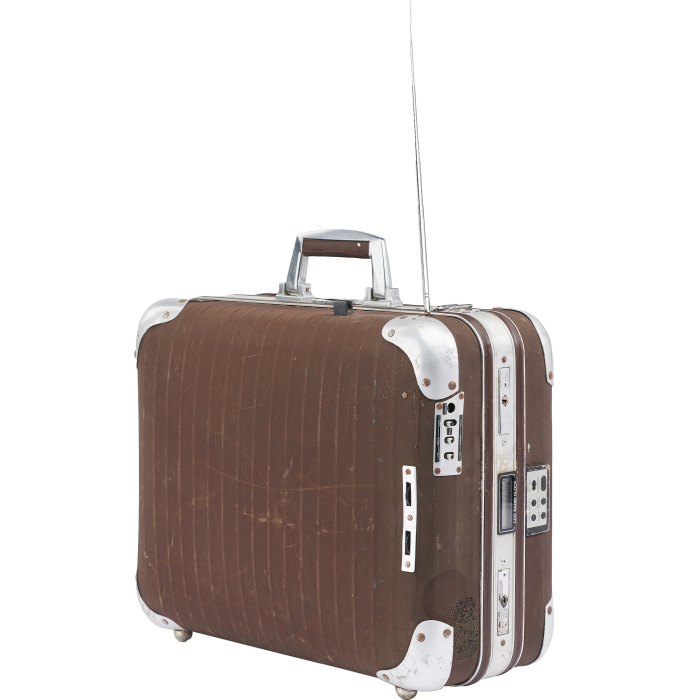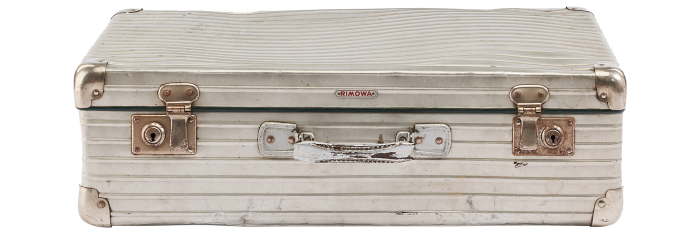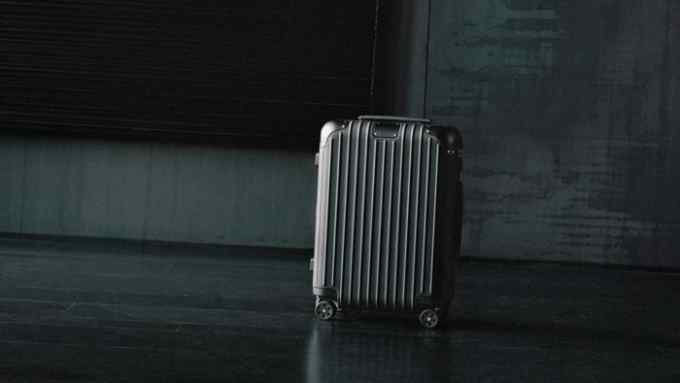Why Rimowa decided to go shell for leather

Simply sign up to the Style myFT Digest -- delivered directly to your inbox.
You can spot one from a mile away: the industrial-looking case, with its tell-tale grooves, gliding smoothly through the airport. Often it’s dinged up, indicative of a life well travelled, other times covered in stickers, sometimes both.
Rimowa’s instantly recognisable suitcases have become global status symbols, synonymous with a certain class of traveller. That the German brand has managed to cultivate a luxury product out of a decidedly unluxury material – aluminium – must be one of the industry’s more unique success stories. As it marks its 125th anniversary, Rimowa is achieving record revenues and has a hard time meeting customer demand.

From 2 November, the brand is moving towards a more typical luxury domain with the launch of the leather-wrapped Distinct suitcase. “There is a big leather territory in the luxury industry, and this has not been a traditional playground for Rimowa,” says Hugues Bonnet-Masimbert, who succeeded Alexandre Arnault as CEO in 2021. “It’s less in response to customers’ demand for a leather suitcase and more from a defined request for more surprises, emotion and elevation.”
Since it was bought by LVMH in 2016, Rimowa has “surprised” its customers with various collaborations: a team-up with streetwear brand Supreme in 2018 sold out in 16 seconds; the same year, a special edition with Off-White saw the brand’s signature trunks realised in see-through polycarbonate. In 2019, Dior Men’s artistic director Kim Jones reimagined the brand’s signature wheelie case as a crossbody bag, while Fendi added leather handles and an orange logoed luggage strap. Most recently, the brand collaborated with Tiffany & Co to create three new products – a suitcase, a crossbody bag and a jewellery box.

Rimowa 1979 Calypso Radio case, from the archive

Rimowa 1969 bass case, from the archive

Rimowa 1953 grooved aluminium case, from the archive
The addition of leather to Rimowa’s range, says Bonnet-Masimbert, “opens up the opportunities of future creative work”. But it’s not a first: the brand was founded as a saddlery firm in 1898 and quickly moved into producing leather luggage in the early 20th century. The aluminium case was introduced in the 1930s as a lighter alternative, while the signature grooves were added in 1950, as a reference to the corrugated body of the world’s first all-metal commercial aircraft.
“It’s been about 100 years since Rimowa has produced leather,” says Bonnet-Masimbert, “and the journey to the new suitcase was a pretty major, difficult endeavour.” The Distinct launch has been years in the making to allow the brand’s artisans in Cologne, where its Classic suitcases are made, to learn the skills required to produce them. “There is a lot of work in the stitching, which was a new know-how for the artisans, and there is very clear innovation in the leather wrapping technique that we have used.”
The new suitcase also comes under Rimowa’s lifetime guarantee, which the brand introduced last year for all future purchases, meaning that if a case loses a wheel or a handle goes bust, Rimowa will repair it. “There are a number of other lifetime guarantees out there that promise that if you have any problem, you can bring back your product and it will be exchanged, no questions asked,” says Bonnet-Masimbert. “But the more responsible thing to do is to make the commitment to repair the suitcase. It puts pressure on the initial quality of the product as it has to be designed for future repair.”

Comments